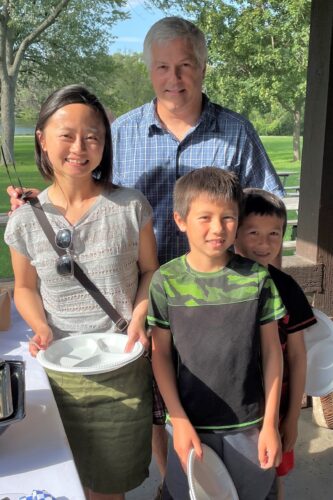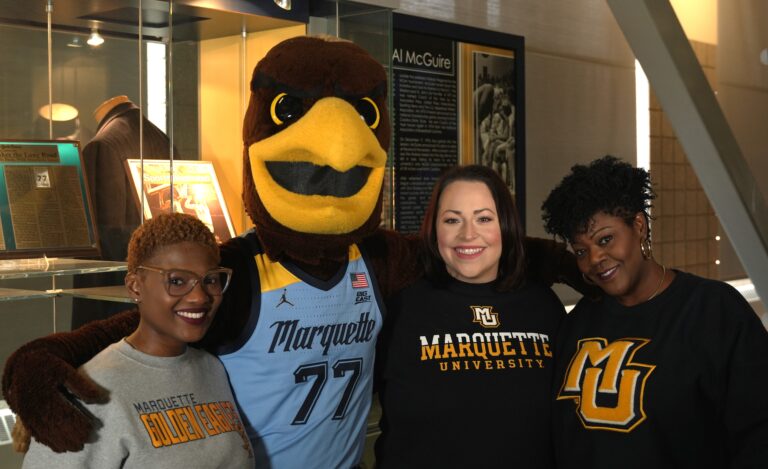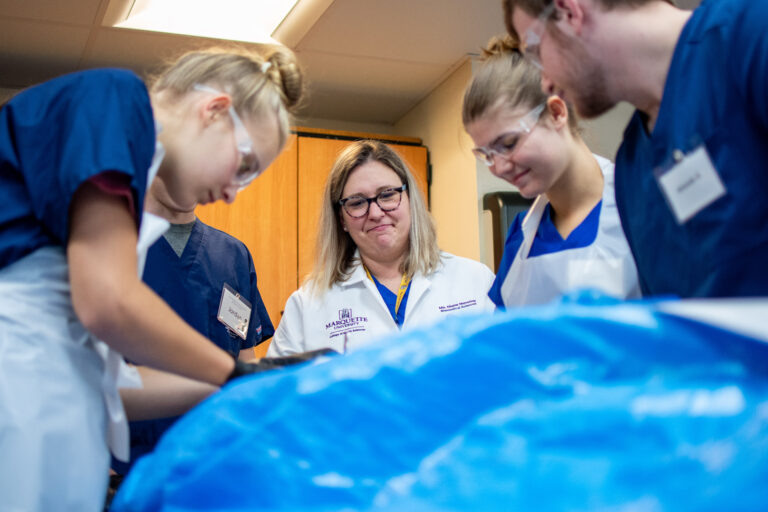
Dr. Qindan Huang first developed a passion for engineering in her homeland of China where she earned an undergraduate degree in structural engineering from Tongji University in Shanghai. Huang later came to the U.S. for her master’s degree, thinking that a degree from an American university would make her more marketable in the competitive Chinese job market.
But as Huang’s interest in research and scholarship grew, she secured a faculty position in civil engineering at The University of Akron after receiving her Ph.D. in 2010. Huang is now an associate professor in the Civil, Construction, and Environmental Engineering Department at Marquette where she teaches graduate and undergraduate courses and advises graduate students.
Faith and family are also important to Huang. She became a Christian after coming to the U.S. and says God helps her find her purpose, builds her confidence through Him and guides her every step. Huang’s husband is also a professional engineer — the couple have two boys with whom they enjoy hiking and biking.
Here in a Q&A, Huang discusses the importance of having women representation in STEM, the changes she’s seeing in the engineering industry and her proudest moments at Marquette.
In recent years, there has been an empowering movement to attract women to careers in science, technology, engineering and math (STEM). Looking back, explain what first got you interested in engineering and what keeps you excited about teaching it to the next generation?
Like many, my interest in engineering began with an interest in physics and mathematics. When I first encountered civil engineering, I wasn’t sure it was the field or career path for me. But I was attracted to the problem solving and logical thinking required in the field, so I studied hard to make sure that I did well.
While working in a consulting firm after I graduated with my master’s degree, I realized that my passion was not in the routine of structural design and that I had a greater interest to do more research-related work to solve more challenging and complex problems. It was then that I went back to graduate school and got my Ph.D.
What keeps me excited about teaching the next generation is that I know I will not only pass on the knowledge I have acquired, but also that I can help equip them with learning and critical thinking skills, build their confidence and accountability, and motivate them to realize their potential.
How important is female representation in engineering and what are some words of encouragement you would give other women who might be interested in going to school for engineering?
Female representation is important in that a diversity of thought, perspective and background is important for every field. Women have a unique perspective, and if not considered, the world and the world of engineering is poorer for it. Engineering is a noble cause that solves the world’s problems; having engaged female representation makes it better.
I would encourage anyone interested in going to school for engineering to have patience and to study hard for the outcome that you want. Not everybody knows what they really want for their career when they first enter college. It took me nearly eight years — four years of college, two years of master’s level study and two years of working — to realize the specific direction I wanted to go in for my career. However, those eight years prepared me well for the career that I love and am passionate about.
If you choose engineering, first you need to have an interest and determination. Studying engineering is not easy but will teach you how to work diligently, organize your time, and build your skills in problem solving and critical thinking. I always encourage students to do their best at every opportunity, or course, that is presented to them, as you never know what doors will open when you’re ready. Be faithful on every task that God entrusts you with, even if it’s simply a homework problem.
In what ways have you seen the STEM industry become more diverse and inclusive during your time in the field, and what do you feel your role is in pushing that message forward?
In both industry or academia, I see more female engineering service professionals and faculty in recent years and even more in leadership positions. Women are rightly viewed as true peers in the field, able to handle all types of engineering needs. My role is to engage, support, and nurture my student’s intellectual curiosity and engineering growth and understanding.
What is one of your proudest moments or accomplishments while at Marquette?
My proudest moment is when students have expressed their appreciation regarding my teaching or advising. Knowing that I played a role in their success is such a rewarding experience for me.


